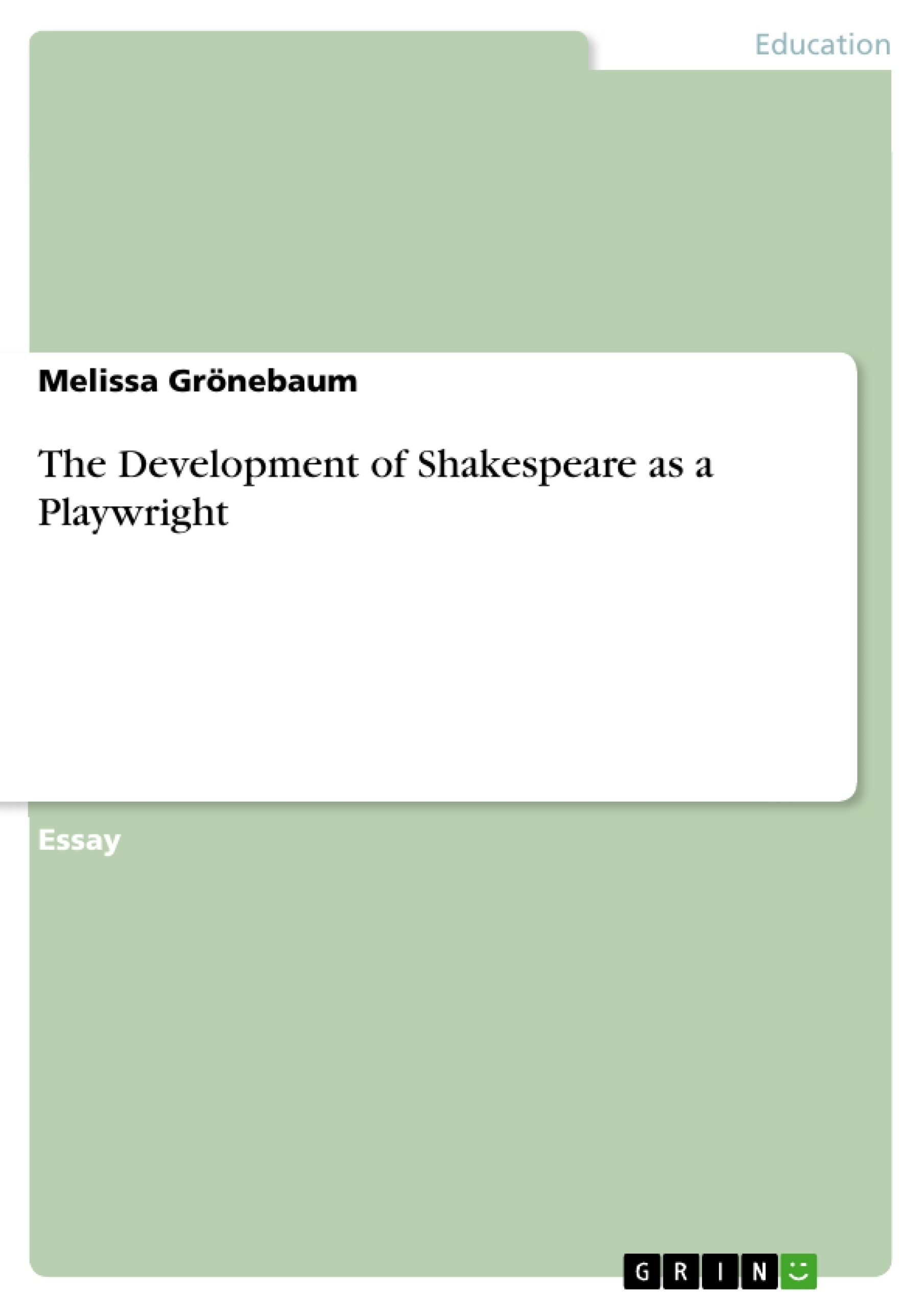Shakespeare (1564-1616) was a formative figure of Elizabethan theater and one of the most popular playwrights ever. In his works he processed several basic themes and combined standard-language with slang, using about 17.750 different, partly newly created words; other than most Elizabethan playwrights he always was “with his eye on the public” (Baker 2). In this way, Shakespeare was able to reach all kind of audience, the simple as well as the aristocratic. After his, due to a lack of information, ‘lost 8 years’, he officially started a career as actor in 1992, at which time he must have already been started being a dramatist, too. According to Baker, Shakespeare’s first production could be traced back to 1592 and Shakespeare’s first release was not before 1597. Later, Shakespeare owned the main part of the globe theatre, developed his own style of playwright and gained in experience, influence and money. When Shakespeare wrote both the plays Henry V. (1599) and The Merchant of Venice (1596), he had already gone through a lot of writing experience. The aim of this essay is, to discuss Shakespeare’s development as a playwright. To do so, “we must fix our gaze upon separate courses of development (…) Thus, for example, (…) we must investigate how Shakespeare manages his plot, (and) how he characterizes his men and women (…).” (Clemen 1) Nevertheless, there are thirty-seven plays of Shakespeare with multiple acts and several scenes each. Obviously, it is not possible to display Shakespeare’s whole development in this small essay; therefore I will focus on those plays mentioned above.
Table of Contents
- The Development of Shakespeare as a Playwright
- Shakespeare's Early Years of Being a Playwright
- Chronicle Plays
- Early Chronicle Plays
- Later Chronicle Plays
- The Merchant of Venice
Objectives and Key Themes
This essay analyzes the development of William Shakespeare's writing style and dramatic techniques by examining his progression from early works to more mature plays. It explores how his abilities in plot construction, character development, and the use of language evolved over time.
- Shakespeare's early career, marked by imitation and adherence to audience expectations.
- The evolution of Shakespeare's dramatic skills, specifically his use of metaphor and characterization.
- The distinction between Shakespeare's chronicle plays and his comedies, highlighting the different approaches to storytelling and thematic focus.
- Shakespeare's innovative treatment of themes such as love, friendship, and the power of language.
- Shakespeare's mastery of dramatic technique, demonstrated through his ability to weave intricate plots, create compelling characters, and engage audiences on multiple levels.
Chapter Summaries
This essay focuses on the development of Shakespeare's dramatic skills, highlighting his early years, his mastery of chronicle plays, and his successful comedic work, *The Merchant of Venice*.
The first section discusses Shakespeare's early career, noting his initial reliance on imitation and his efforts to meet audience expectations. His early works, such as *Love Labour's Lost*, were often based on established conventions and popular narratives. However, even in these early plays, Shakespeare demonstrated his talent for language and his ability to craft engaging narratives.
The second section delves into Shakespeare's chronicle plays, such as *Richard III* and *Henry V*. These plays, drawing inspiration from English history, exhibit Shakespeare's growing understanding of dramatic technique and his increasing ability to portray complex characters. The analysis highlights the development of Shakespeare's use of metaphor and his understanding of the stage, particularly in *Henry V*, where he uses imagery and language to create a sense of historical grandeur.
The final section examines *The Merchant of Venice*, a play that demonstrates Shakespeare's mastery of comedy and his ability to explore complex themes of love, friendship, and justice. This section analyzes Shakespeare's portrayal of female characters, such as Portia, and the play's exploration of romantic and platonic love. It also examines the play's complex social and political themes, highlighting the tensions between Christian and Jewish characters.
Keywords
Key terms and concepts explored in this essay include Shakespearean drama, Elizabethan theatre, chronicle plays, comedy, characterization, metaphor, language, storytelling, plot, and the development of dramatic techniques.
- Quote paper
- Melissa Grönebaum (Author), 2013, The Development of Shakespeare as a Playwright, Munich, GRIN Verlag, https://www.grin.com/document/268365



